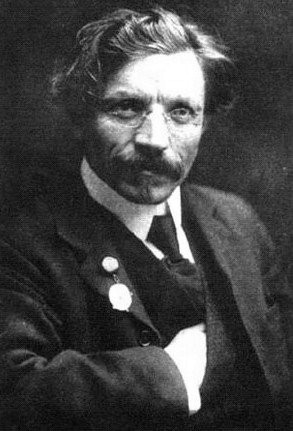Thoughts on reading Hodel by Shalom Aleichem.

In his story “Hodel”, Shalom Aleichem uses a verbose and chatty narrative style to help explain phenomena that are both shocking and inexplicable, such as with the topics of change and evolution. Approaching the climax of the story, Hodel informs her father, Tevye, that she is leaving her parents to go off and live with Feferel. Tevye is devastated at the news, and expresses his devastation by telling Hodel
“A little fable - about a hen that hatched some ducklings. As soon as the the ducklings could move they took to the water and swam, and the poor hen stood on the shore, clucking and clucking. ‘What do you say to that, my daughter?’” Tevye sees himself as the hen losing her ducklings, a violent change in his otherwise peaceful life. However, Hodle replies “‘I am sorry for the poor hen; but just because she stood there clucking, should the ducklings have stopped swimming?’”(188)
Hodel recontextualizes the narrative and flips the parable onto her father, reminding him that the ducklings have their own path they must follow, not to be deterred by the cries of the hen, no matter how distraught the hen is over the prospect of losing her precious ducklings. By speaking in such an informal and verbose manner to her father, Hodel is relaying her ideas through her father’s own lexicon, hoping to lessen the weight of her heavy actions, showing empathy for her father. Hodel is arguing that Tevye needs to accept that though her leaving may be tough for him to swallow, she has evolved from a child into a woman, and so must she take the reigns of her own life, no matter how dangerous a proposition that may be.
Shalom Aleichem, through the mouth of Hodel, is arguing to his audience, the Jewish people of Eastern Europe, that even though change and evolution are sobering issues, the older generation must at some point un-yolk the younger generation and allow them to follow their own path, no matter how difficult that may be. And just as Hodel responds to her father’s woes in his own speech patterns, Shalom Aleichem writes about these complex issues in a language that the jewish people can understand: Yidish.